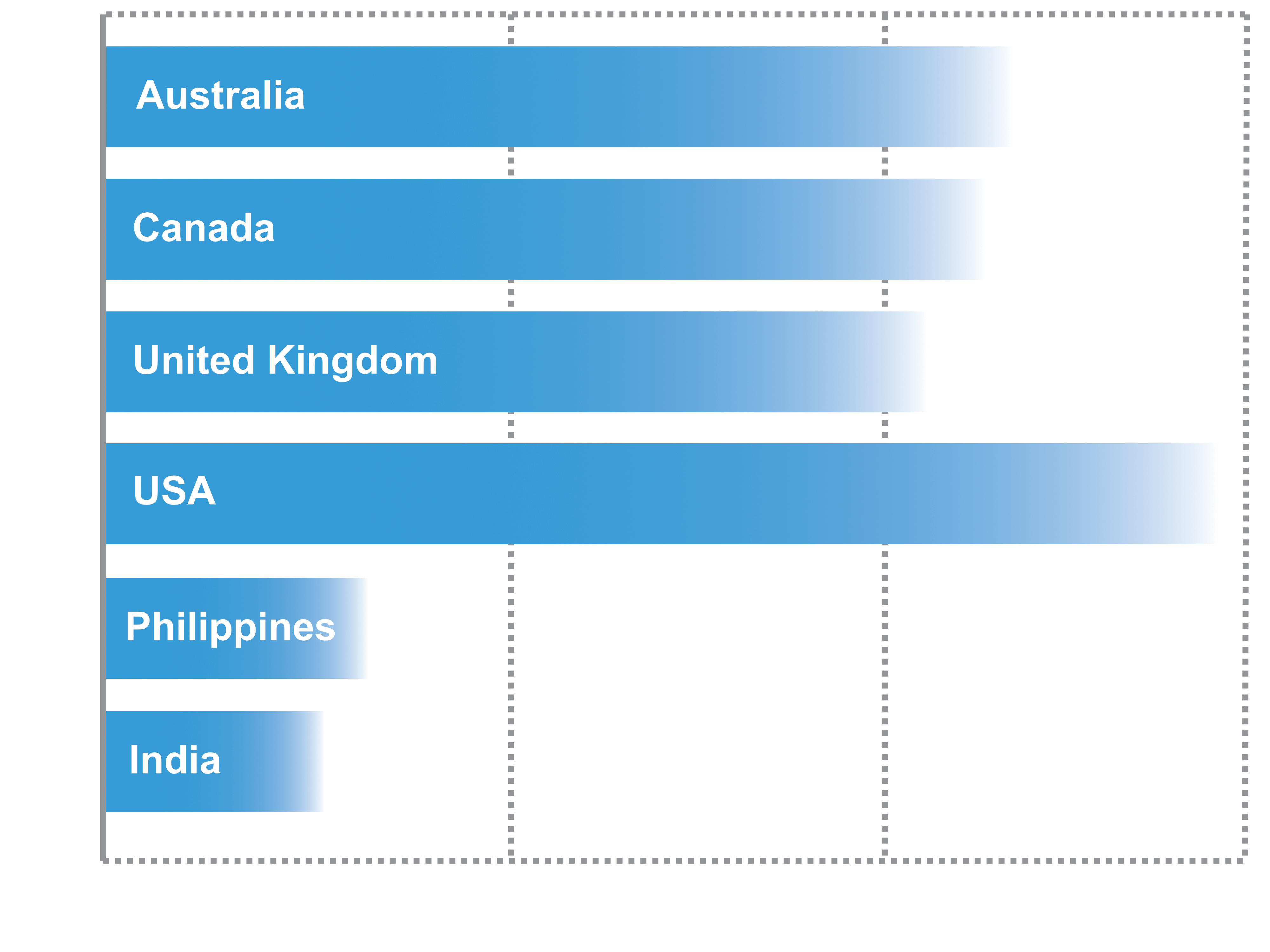
What are the Back Office Functions?
The administrative and support tasks that make up back office services keep a business functioning efficiently. Unlike front-office activities, which involve direct customer interaction, back-office tasks are more internal and often unseen by clients. However, they are just as important, if not more so, for ensuring that the company operates efficiently.
Some common back office functions include:
Accounting and Finance
This involves managing the company's financial records, processing transactions, and ensuring compliance with regulations. Accounting and Finance also includes tasks like payroll management, financial reporting, and budgeting.
Human Resources (HR)
HR handles employee-related functions such as recruitment, onboarding, training, benefits administration, and compliance with labor laws. A strong HR department is vital for maintaining a motivated and efficient workforce.
IT Support
Information Technology (IT) support ensures that all technology systems, software, and hardware function correctly. This includes maintaining networks, providing technical support to employees, and safeguarding data security.
Data Management
This involves collecting, storing, and managing data that is critical for decision-making. Effective data management ensures that the company’s information is accurate, secure, and easily accessible.
Procurement
The procurement department is responsible for purchasing the goods and services that the company needs to operate. This includes negotiating with suppliers, managing inventory, and overseeing supply chain logistics.
The Importance of Back Office Functions
While back-office functions might not be as visible as front-office tasks, their impact on the overall success of a business is undeniable. Here’s why they matter:
Efficiency and Productivity
Effective back-office operations streamline business processes, reduce redundancies, and improve overall efficiency. When back-office functions run smoothly, front-office teams can focus on their core tasks without distractions.
Risk Management and Compliance
Back office functions, especially in finance and HR, play a critical role in ensuring that the company complies with all relevant laws and regulations. This helps mitigate risks and prevents costly legal issues.
Cost Control
Efficient management of back office functions can lead to significant cost savings. For example, proper budgeting and financial management can help a company avoid unnecessary expenses and optimize resource allocation.
Data-Driven Decision-Making
Back office functions like data management provide the foundation for informed decision-making. Accurate and timely data allows businesses to make strategic decisions that drive growth and profitability.
Employee Satisfaction
HR functions directly impact employee satisfaction and retention. A well-managed HR department ensures that employees are supported, motivated, and engaged, leading to higher productivity and lower turnover rates.

Why Outsource Back Office Functions?
Cost Savings
Outsourcing can significantly reduce labor costs, especially when partnering with companies in countries with lower wage rates. It also eliminates the need for investment in expensive infrastructure and technology.
Access to Expertise
Providers specialize in specific back-office functions, offering a level of expertise that might be difficult to achieve in-house. This expertise can lead to higher quality work and improved efficiency.
Scalability
Hiring back office functions allow businesses to scale their operations up or down as needed without the challenges of hiring, training, or laying off staff. This adaptability is especially beneficial for companies whose workloads change frequently.
Focus on Core Business
Recruiting back-office tasks, companies can focus their internal resources on core business activities like product development, marketing, and customer service. Growth and innovation can result from this concentration.
Improved Risk Management
Back office providers often have robust risk management practices in place, helping to protect the company from potential issues related to compliance, data security, and operational disruptions.
Conclusion
Back office functions might operate behind the scenes, but their impact on a company’s success is significant. By understanding and effectively managing these functions, businesses can improve efficiency, reduce costs, and drive growth. Whether handled in-house or outsourced, back-office operations are essential for any thriving business.
Compute potential savings for your remote staff and virtual team member
Build Your Global Team and Save up to 70% on Labor Cost.
Recent Articles
About Outsource Calculator
Outsource Calculator helps boost your profits, increases quality and efficiency, and allows your business to scale quickly without expensive overhead.
Empowering
Get a FREE Quote & Save 70% on Labor costs!
The Outsource Calculator estimates the savings from outsourced staffing solutions compared to hiring locally, which is intended for informational purposes only. It provides approximate pricing only may not be accurate and should only be used as a guide and is not an official quote. You should not make any decisions based simply on the information provided. Outsource Calculator pricing is based on the typical employee salaries for each role, including all employee payroll taxes, government-mandated employee costs, employee technology required, office space, hardware costs, IT support, recruiting, training, onboarding, and all HR functions which provide a more accurate comparison with the outsourced staffing compared to local hiring.
United States
United Kingdom
Australia
Canada
Europe
Copyright © 2024 OutsourceCalculator.com All rights reserved. Privacy Policy Terms of Use




